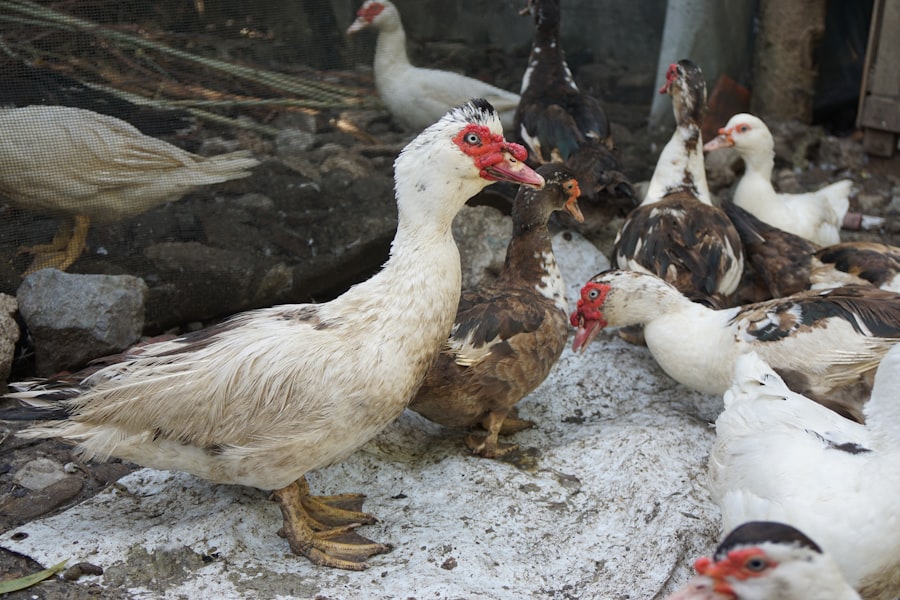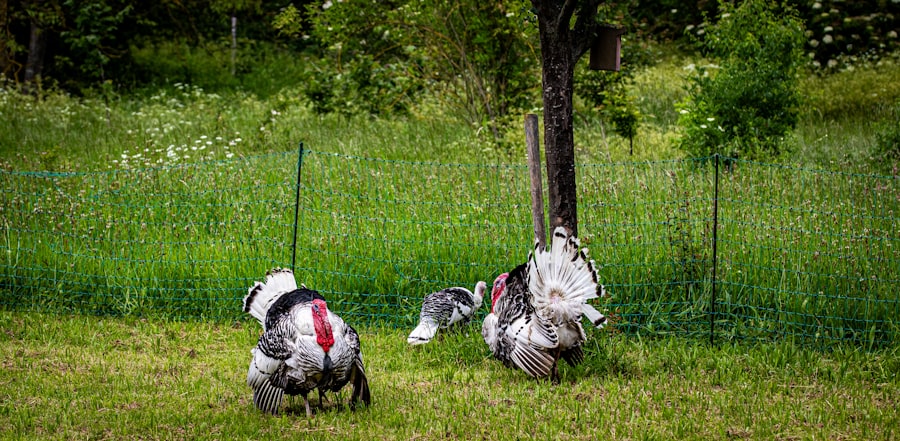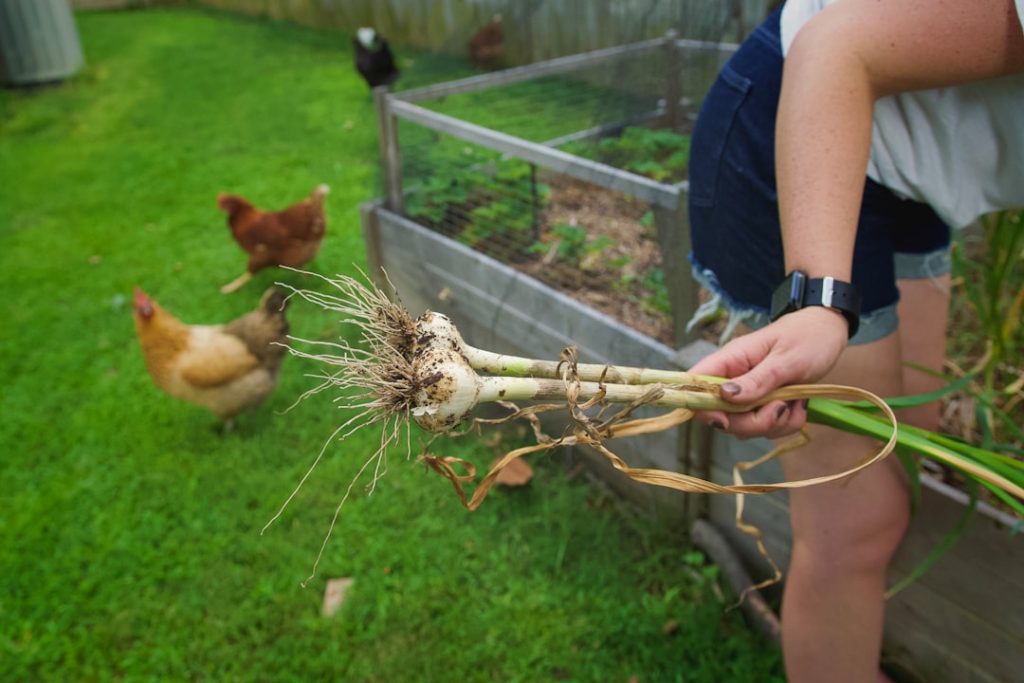The Casey Council has recently approved a measure allowing residents to keep chickens on their properties. This decision was made after careful consideration of the potential benefits and concerns associated with urban chicken-keeping. The council’s action acknowledges the increasing interest in urban agriculture and sustainable living practices among residents.
By permitting chickens in residential areas, the council is supporting the community’s growing focus on self-sufficiency and local food production. This move aligns with broader trends towards environmentally conscious living and the desire for locally sourced, organic food options. Keeping chickens can provide residents with fresh eggs, promote a deeper understanding of food production processes, and contribute to more sustainable consumption habits.
The decision to allow residential chicken-keeping represents a significant step in promoting sustainable living practices within the community. It demonstrates the council’s commitment to adapting to changing lifestyle preferences and environmental concerns. This policy change has the potential to positively impact the community by encouraging greater food security, reducing reliance on commercial food systems, and fostering a stronger connection between residents and their food sources.
As with any new policy, the council will likely monitor the implementation of this measure to ensure it benefits the community while minimizing any potential negative impacts on neighbors or animal welfare.
Table of Contents
- 1 Benefits of Keeping Chickens
- 2 Regulations and Guidelines for Keeping Chickens in Casey Council
- 3 Responsibilities of Chicken Owners
- 4 Potential Concerns and Issues
- 5 Community Response and Support
- 6 Conclusion and Future Outlook
- 7 FAQs
- 7.1 What is the Casey Council’s policy on keeping chickens?
- 7.2 How many chickens are residents allowed to keep?
- 7.3 What are the guidelines for keeping chickens in Casey Council area?
- 7.4 Are there any restrictions on roosters?
- 7.5 Do residents need to obtain a permit to keep chickens?
- 7.6 What should residents do if they have concerns about their neighbors keeping chickens?
Key Takeaways
- Casey Council has made a decision to allow residents to keep chickens in their backyard.
- Keeping chickens can provide benefits such as fresh eggs, natural pest control, and educational opportunities for children.
- Regulations and guidelines for keeping chickens in Casey Council include limits on the number of chickens, coop requirements, and noise restrictions.
- Chicken owners are responsible for proper care, hygiene, and ensuring their chickens do not cause a nuisance to neighbors.
- Potential concerns and issues related to keeping chickens include noise, odor, and attracting pests, which need to be addressed by owners.
- The community has shown support for the decision, with many residents expressing interest in keeping chickens and offering assistance to those new to chicken ownership.
- In conclusion, the decision to allow chickens in Casey Council is a positive step towards sustainable living, and the future outlook is promising for responsible chicken ownership in the community.
Benefits of Keeping Chickens
Fresh and Healthy Food
One of the primary advantages of keeping chickens is the access to fresh, organic eggs. By raising their own chickens, residents can ensure that their eggs are free from harmful chemicals and antibiotics, and can enjoy the satisfaction of producing their own food.
Natural Pest Control and Educational Opportunities
In addition to providing a sustainable source of eggs, chickens also offer natural pest control by consuming insects and other pests in the garden. This can help reduce the need for chemical pesticides and promote a healthier, more natural environment. Furthermore, keeping chickens can also be an educational experience for both children and adults, providing an opportunity to learn about animal care, biology, and the food production process.
Environmental Sustainability and Self-Sufficiency
Raising chickens can also contribute to healthier soil and more abundant harvests by providing valuable fertilizer for gardens. Overall, keeping chickens on residential properties can promote self-sufficiency, environmental sustainability, and a deeper connection to food production.
Regulations and Guidelines for Keeping Chickens in Casey Council

While the decision to allow chickens in residential areas is an exciting opportunity for residents, it is important to be aware of the regulations and guidelines set forth by the Casey Council. These regulations are in place to ensure the well-being of both the chickens and the community, and to address any potential concerns or issues that may arise from keeping chickens in residential areas. Some of the key regulations include limits on the number of chickens allowed per property, requirements for coop size and design, and guidelines for waste management and odor control.
It is important for residents to familiarize themselves with these regulations and ensure that they are in compliance with all requirements before keeping chickens on their properties. In addition to specific regulations, there are also general guidelines for keeping chickens that should be followed to ensure the well-being of the animals and the surrounding community. These guidelines include providing adequate shelter, food, water, and veterinary care for the chickens, as well as taking measures to prevent noise disturbances and odor issues.
It is also important to consider the impact of keeping chickens on neighboring properties and to take steps to minimize any potential disruptions. By adhering to these regulations and guidelines, residents can enjoy the benefits of keeping chickens while also being responsible stewards of their animals and their community.
Responsibilities of Chicken Owners
As with any pet or animal ownership, keeping chickens comes with a set of responsibilities that must be upheld by the owners. It is important for chicken owners to provide proper care and attention to their animals, ensuring that they have access to clean water, nutritious food, adequate shelter, and veterinary care when needed. Regular maintenance of the chicken coop and surrounding area is also essential to ensure a clean and healthy environment for both the chickens and the community.
Additionally, owners must be mindful of noise levels and odor control to minimize any potential disturbances to neighbors. Furthermore, chicken owners should be prepared to handle any potential health or behavioral issues that may arise with their animals. This includes being knowledgeable about common chicken illnesses and injuries, as well as understanding how to properly handle and care for their chickens.
It is also important for owners to be proactive in addressing any concerns or complaints from neighbors regarding their chickens, and to take steps to mitigate any issues that may arise. By upholding these responsibilities, chicken owners can ensure the well-being of their animals and maintain a positive relationship with their community.
Potential Concerns and Issues
While there are many benefits to keeping chickens in residential areas, there are also potential concerns and issues that must be addressed. One of the primary concerns is noise pollution, as roosters can be particularly loud and disruptive to neighbors. To mitigate this issue, many local ordinances prohibit the keeping of roosters in residential areas or impose restrictions on their crowing hours.
Additionally, odor control is another potential issue that must be managed by chicken owners through regular cleaning of the coop and proper waste management practices. Another concern associated with keeping chickens is the potential for attracting pests such as rodents or flies. Proper coop maintenance and waste management can help minimize this risk, but it is important for chicken owners to be vigilant in preventing pest infestations.
Additionally, there may be concerns about the impact of keeping chickens on property values or neighborhood aesthetics. By adhering to regulations and guidelines set forth by the Casey Council, as well as being proactive in addressing any concerns from neighbors, chicken owners can help mitigate these potential issues and maintain a positive relationship with their community.
Community Response and Support

Growing Interest in Urban Farming and Sustainable Living
Despite the initial mixed response, there has been a growing interest in urban farming and sustainable living practices within the community, leading to increased support for allowing chickens in residential areas. Many residents view this decision as a chance to reconnect with nature, promote self-sufficiency, and contribute to a more sustainable community.
Community Support for Urban Farming Initiatives
In response to this growing interest, there has been a surge in community support for initiatives such as backyard chicken keeping workshops, where residents can learn about best practices for raising chickens in a residential setting. Local organizations have also been offering resources and support for those interested in keeping chickens, including information on coop design, chicken care, and local regulations.
A Positive Outlook for Urban Farming in Casey Council
This growing community support indicates a positive outlook for the future of urban farming in Casey Council, as well as a willingness to work together towards creating a more sustainable and environmentally conscious community.
Conclusion and Future Outlook
The decision by Casey Council to allow residents to keep chickens on their properties reflects a progressive mindset towards promoting sustainable living practices and self-sufficiency within the community. While there are regulations and guidelines in place to address potential concerns associated with keeping chickens in residential areas, there are also numerous benefits that come with this opportunity. By upholding their responsibilities as chicken owners and being mindful of potential concerns, residents can enjoy the benefits of raising their own chickens while contributing to a more sustainable community.
Looking ahead, it is important for residents to continue working together towards creating a positive environment for urban farming initiatives such as backyard chicken keeping. By fostering community support and sharing resources and knowledge, residents can contribute to a more sustainable future for Casey Council. As interest in urban farming continues to grow within the community, there is great potential for further initiatives that promote self-sufficiency, environmental sustainability, and a deeper connection to food production.
The decision to allow chickens in residential areas sets a precedent for future opportunities to promote sustainable living practices within Casey Council, paving the way for a more environmentally conscious and self-sufficient community.
If you’re interested in keeping chickens in your backyard, you may also want to learn about how long it takes for chicken eggs to hatch naturally. Poultry Wizard has a helpful article on this topic, which you can read here. Understanding the hatching process can be important for anyone considering raising chickens, and it’s just one of the many aspects of chicken care that Casey Council is likely considering as they debate the issue.
FAQs
What is the Casey Council’s policy on keeping chickens?
The Casey Council allows residents to keep chickens on their property, with certain restrictions and guidelines in place.
How many chickens are residents allowed to keep?
Residents are allowed to keep a maximum of 6 chickens on their property, as per the Casey Council’s guidelines.
What are the guidelines for keeping chickens in Casey Council area?
The guidelines for keeping chickens in the Casey Council area include requirements for coop size, distance from neighboring properties, and the proper disposal of chicken waste.
Are there any restrictions on roosters?
Yes, the Casey Council prohibits the keeping of roosters within residential areas to avoid noise disturbances.
Do residents need to obtain a permit to keep chickens?
No, residents do not need to obtain a permit to keep chickens in the Casey Council area, as long as they adhere to the council’s guidelines.
What should residents do if they have concerns about their neighbors keeping chickens?
Residents who have concerns about their neighbors keeping chickens should contact the Casey Council to address any issues or violations of the guidelines.
Meet Walter, the feathered-friend fanatic of Florida! Nestled in the sunshine state, Walter struts through life with his feathered companions, clucking his way to happiness. With a coop that’s fancier than a five-star hotel, he’s the Don Juan of the chicken world. When he’s not teaching his hens to do the cha-cha, you’ll find him in a heated debate with his prized rooster, Sir Clucks-a-Lot. Walter’s poultry passion is no yolk; he’s the sunny-side-up guy you never knew you needed in your flock of friends!







